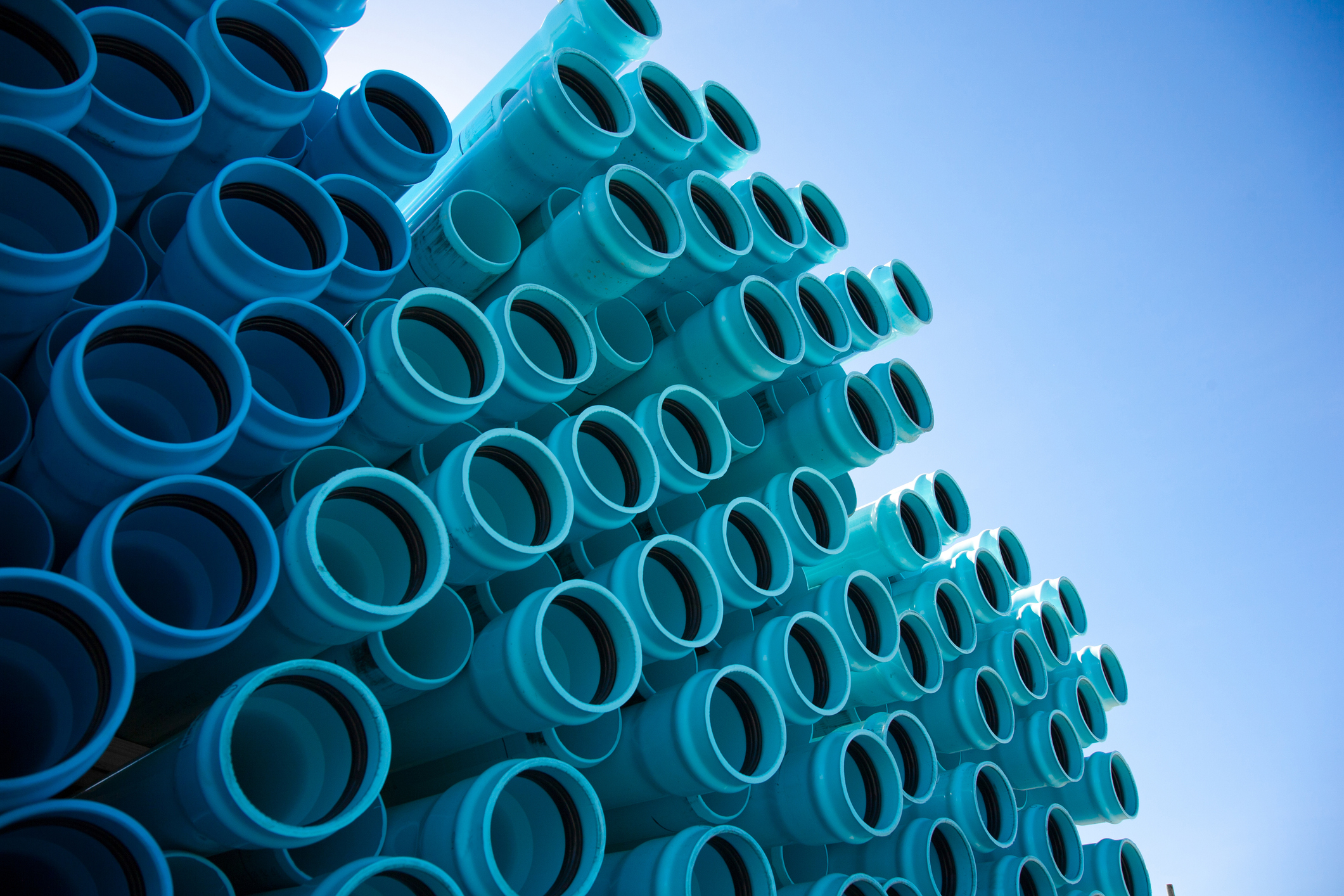
The plastics industry relies on a robust American infrastructure system to properly handle its material, and is also in a prime position to contribute to our nation’s infrastructure needs. From improved recovery facilities to uses in pavements and pipes, plastics can play a role. The infrastructure policies we advocate for create jobs, protect the environment and improve our daily lives. Learn more about our infrastructure priorities in the pages below.
PLASTICS is working with coalition partners and Congress to include recycling funding in a national infrastructure package. Learn more about our communication with lawmakers and what we would like to see in federal legislation.

Water is a critical resource and requires critical infrastructure to handle it. A variety of materials exist that can meet these varying requirements needed for potable water, stormwater and wastewater projects. PLASTICS advocates for policies that give civil engineers the option to consider plastic when designing their water infrastructure systems.
The well-established 3 Rs now have a friend: reduce, reuse and recycle have been joined by recover. Plastics that are too difficult or costly to recycle can provide an enormous benefit in pyrolysis, chemical recycling, gasification and anaerobic digestion systems. In these processes, plastics are chemically broken down into their components that allow them to be used as resources in new markets. PLASTICS seeks to streamline the process that allows these systems to come online and become end-markets for hard-to-recycle plastics.
The durability of plastics allows them to serve in high-stress and high-impact environments. One of the latest examples of this is the use of plastics in roadway applications. PLASTICS is working with the National Center for Asphalt Technology to study the storage stability of recycled PET with asphalt binders. Our goal is to find the best application for plastics in building and repairing the nation’s millions of miles of roads and highways.
Membership in the Plastics Industry Association (PLASTICS) gives your company a voice in shaping the industry’s future and a measurable return on investment through networking, advocacy, educational programming and business opportunities that can come only from joining.